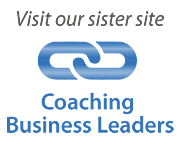Creativity

Creativity involves deliberately using our imagination to produce new ideas and develop elegant solutions to problems. Although some people are naturally more creative than others, it is a skill that can be developed by anyone. Developing creativity involves
- Setting aside specific times to think in a creative way and
- Making use of creative thinking techniques such as brainstorming or metaphor analysis
There are a number of guidelines that can help us to understand the key points of developing our creativity, they include:
- Seek out new experiences
The raw material of inventiveness is the experiences, concepts and values that we are exposed to. By consciously seeking out new experiences, reading things we wouldn’t normally read etc. we can build up a storehouse of data that can help to spark an idea at some time in the future. - Quantity of ideas is key
In trying to develop new ideas many of our thoughts will prove to be impractical, but if we generate a large number of possibilities, then by the law of averages, a few of them will be very valuable indeed. - Separate generating ideas from evaluating them
Sometimes the silliest seeming option or the most bizarre proposal is actually the one that holds the most promise. Thus one of the keys to creativity is to capture every idea without passing judgement and to assess their viability only after a large number of possibilities have been written down. - Inspiration comes from hard work
A ‘eureka moment’ where a fantastic idea seems to ‘appear’ from thin air typically only happens when a problem has been worked upon for some time. So making the effort to consciously ponder an issue and taking the time to apply creative tools to a problem is one of the cornerstones of developing great ideas.
Assess the current situation
Reflect on your current approach to using your imagination. Think about the four statements above. What do you consider your strengths and weaknesses to be?
Think about asking for feedback from those you work with. Decide what changes you want to make and set yourself a goal(s).
Read
Osborn, Alex - Your Creative Power
Myers Press (first published 1948)
Written over fifty year ago and still one of the best works on the topic.
De Bono, Edward - Lateral Thinking: creativity step by step
Harper & Row (1970)
A classic text on the barriers to creative thinking and how they can be overcome.
Identify from these books what you want to put into practice. Discuss your thoughts with your line manager/mentor. Identify other books on creativity that may be helpful to you.
Watch creative people
Identify individuals in the organisation, who you (and/or your line manager/mentor) consider are successful creative people. Observe what they do and compare that to what less creative people do. How does what you see relate to your approach?
Listen
Wenger, Vin - Brain Boosters (6 cassette audio tape), Nightingale Conant
Techniques for developing creativity and using the power of the unconscious mind.
Then - most importantly
Go through the steps shown in the How to Use Our Tutorials page to really cement and develop what you've learned into a useful part of your business skill set.
Contact
To talk to us about our range of courses contact
Boulden Management Consultants:
via our Contact form
Tel: 0844 394 8877



